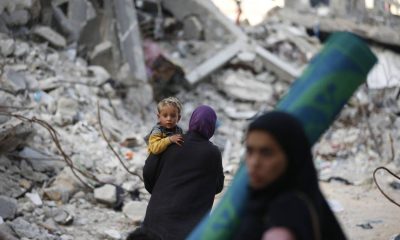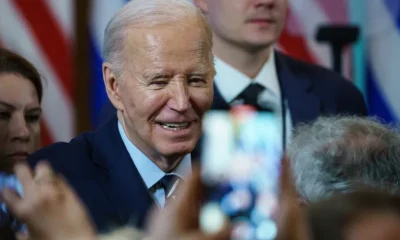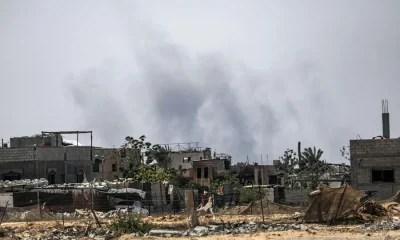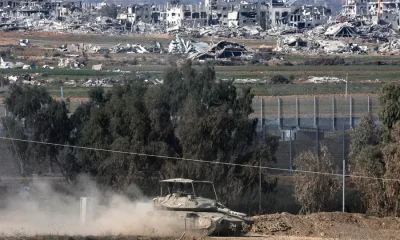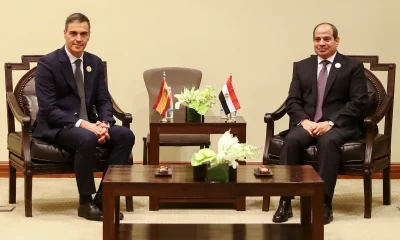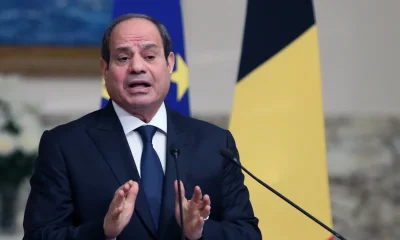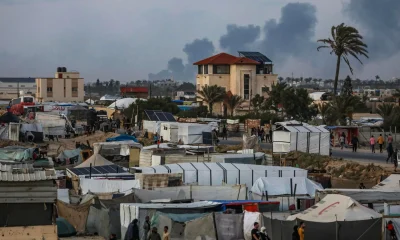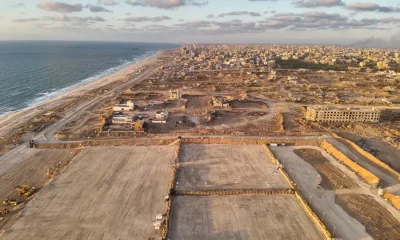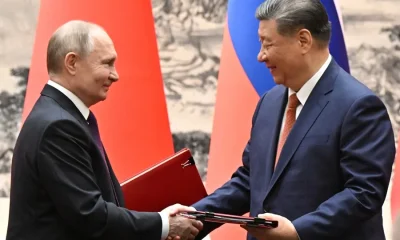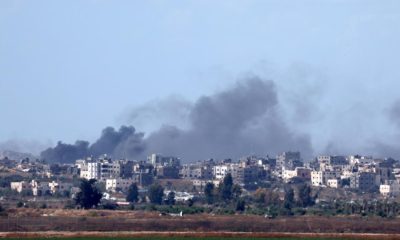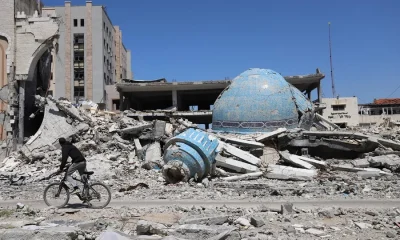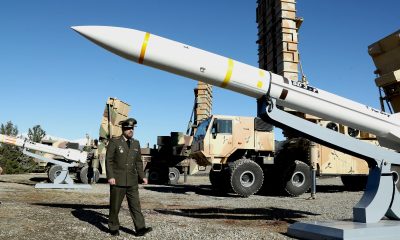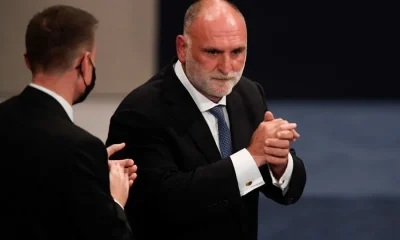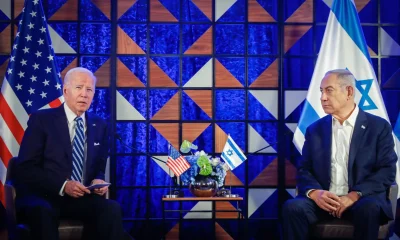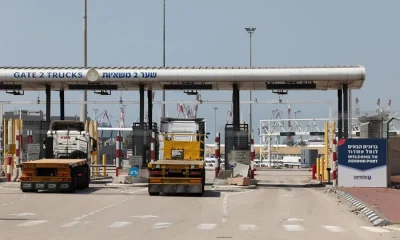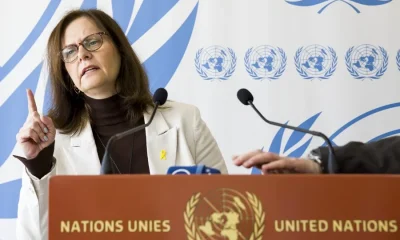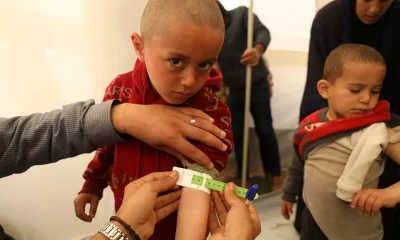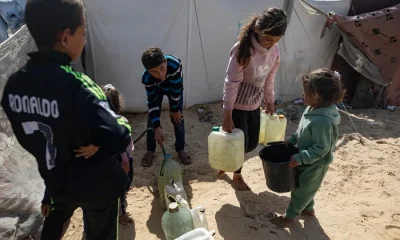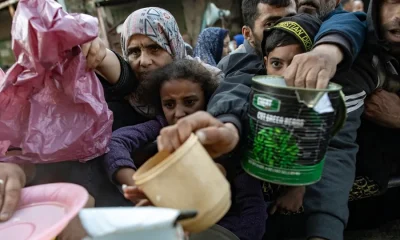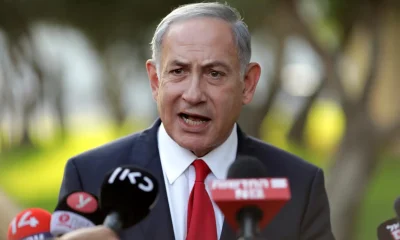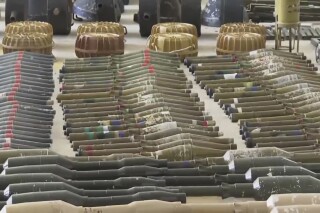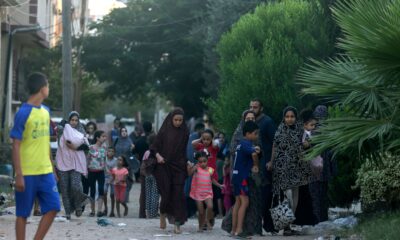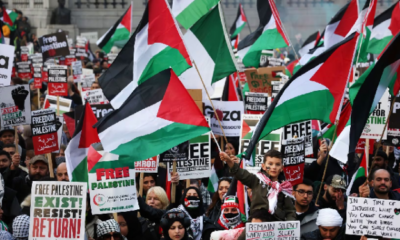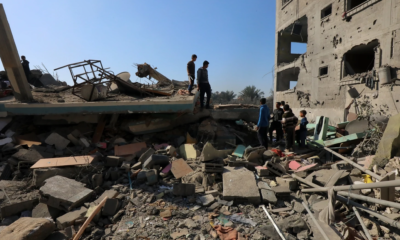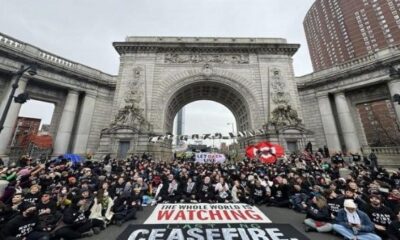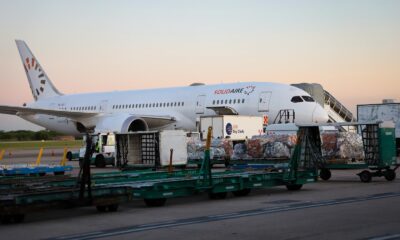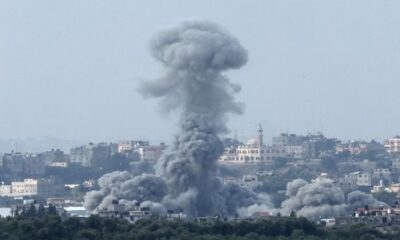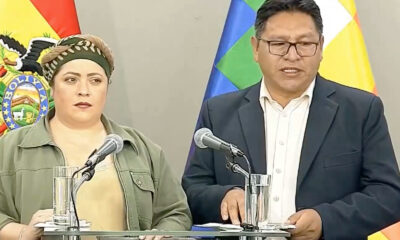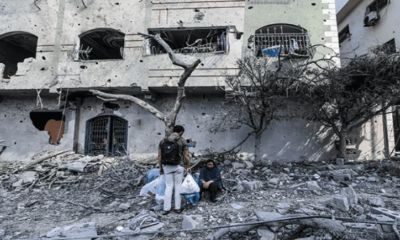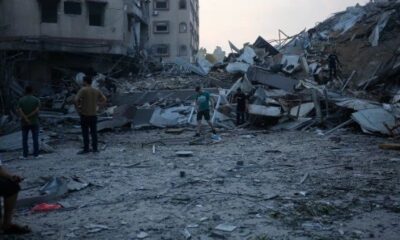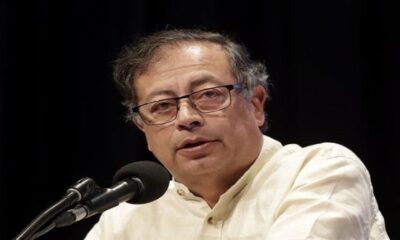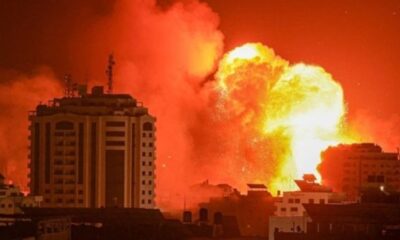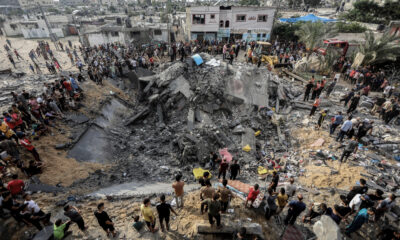International
The Israeli Army withdraws all its troops from the south of the Gaza Strip
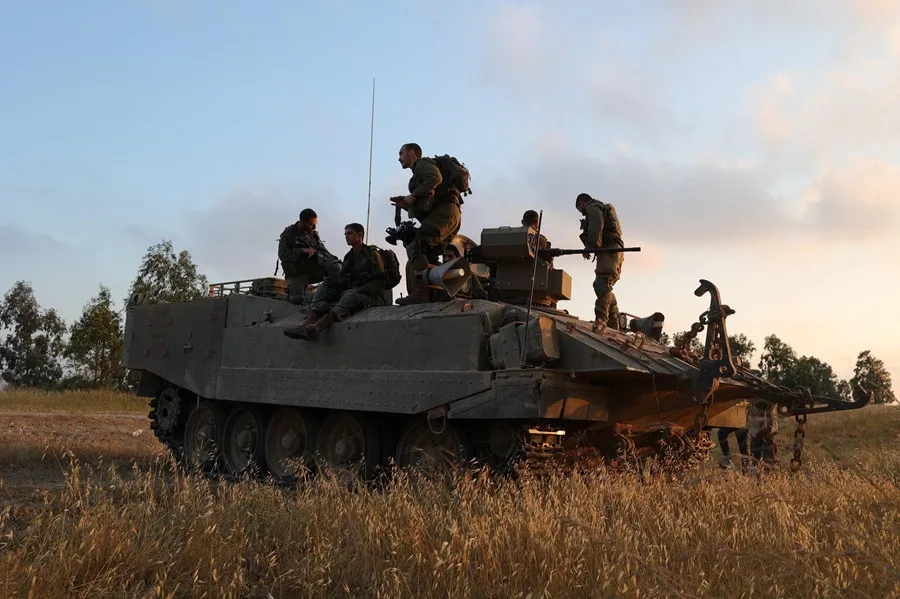
The Israeli Army withdrew all its ground troops from the south of the Gaza Strip last night, and there is only one brigade left in the enclave, a military source confirmed to EFE on Sunday.
The withdrawal comes after four months of fighting in the Jan Yunis area and six months after the beginning of the war between Israel and Hamas in Gaza, where more than 33,100 Palestinians have already died, most of them women and children.
Currently there is only one Israeli brigade left in the Palestinian enclave that is responsible for securing a corridor between the south of Israel and the Gaza coast, blocking the passage to the north of the Strip and facilitating operations in the center and north of the territory.
The two main hospitals of this southern city, Al Amal and Naser, have been devastated and inoperative after the siege of the Hebrew troops during these months under the thesis that there was the presence of alleged fighters in these complexes.
“Dozens of suspects have been delivered to Shin Bet and Unit 504 of the Directorate of Military Intelligence to be further interrogated,” the Army said in a statement on April 2.
Likewise, the Israeli Army reported on Sunday that, before its withdrawal, its combat units have carried out the last operations in the Al Amal neighborhood to finish “dismantling the terrorist infrastructure.”
In a message in X, former Israeli Minister of Justice Gideon Sa’ar criticized the withdrawal of troops, assuring that “the continuous decrease in the size of the Israeli forces” in Gaza “has distanced us from achieving the objectives of the war.”
Israel’s next target in Gaza seems to be the already announced military incursion into Rafah, in the south of the enclave, where 1.4 million displaced people live and there are still, according to the Army, four battalions from Hamas; an incursion opposed by the United States, Israel’s main military ally.
The official death toll in the Gaza Strip reached 33,175 this Sunday, six months after the start of the devastating Israeli war offensive.
More than 14,000 of those deaths, or 42%, are children, while 9,220 would be women, according to the same source. The total number of injured is 75,886, to which must be added about 7,000 bodies that are estimated to remain under tons of debris.
“The Israeli occupation committed 4 massacres against families in the Gaza Strip, causing 38 deaths and 71 injuries in hospitals during the last 24 hours,” the Gazazi Ministry of Health said today in a statement.
Egypt decided to increase the number of trucks with food, medical aid and emergency supplies for the Gaza Strip to at least 300 trucks per day as of this Sunday, the head of the Egyptian State Information Service, Diaa Rashwan, reported in a statement.
This decision, values the note. part of “the directives of President Abdelfatah al Sisi” to increase the humanitarian aid that enters the Palestinian enclave from the Egyptian side of the Rafah border crossing, the only one that does not control Israel, despite the fact that it inspects each cargo that enters from it.
In fact, Egypt denounced on numerous occasions the delays and traffic jams of trucks in northern Sinai due to Israeli inspections and rejections of certain products, which has forced the Arab country to launch aid by air to appease the humanitarian crisis resulting from the conflict.
According to the latest report of the United Nations Agency for Palestinian Refugees (UNRWA), “since the beginning of April, an average daily of 169 aid trucks have entered Gaza through the land crossings of Kerem Shalom and Rafah. This figure is still well below the operational capacity of both crossings and the target of 500 trucks per day.”
Israeli Prime Minister Benjamin Netanyahu reiterated this Sunday, when it is six months of war in the Gaza Strip, that there will be no truce agreement if the 133 hostages still in the hands of Hamas do not return home, adding that Israel will not give in to the “extreme demands” of the Islamists.
“I made (something) clear to the international community: there will be no ceasefire without the return of the kidnapped. It just won’t happen,” Netanyahu said today in a speech before meeting with his cabinet, and recalled that the Administration of U.S. President Joe Biden shares his same opinion.
He added that Israel does not oppose a truce agreement and blamed Hamas for “extreme demands” whose objective is to end the war “to guarantee its survival, its rehabilitation, (and) its ability to endanger” Israeli citizens and soldiers again.
This same night a massive anti-government demonstration has been called in Jerusalem, in which not only activists but also some of the relatives of the captives will participate, who blame Netanyahu for being more concerned about his political survival than about returning his family home.
The Israeli Minister of Defense, Yoav Gallant, assured on Sunday that Israel has completed preparations to face “any scenario” against Iran, which has been threatening for days to retaliate for an alleged Israeli attack on the Iranian embassy in Damascus (Syria).
Gallant made these statements after the meeting held today with the head of the Israeli Army Operations Directorate, Oded Basiuk, and the head of the Military Intelligence Directorate, Aharon Haliva, according to a statement from the authorities.
Israel is on alert after the attack that took place last Monday, April 1, against the Iranian embassy in Damascus, the capital of Syria, in which at least 19 people died, including the highest-ranking commander of the Iranian Revolutionary Guard, Mohamed Reza Zahedi.
Iran insisted, after celebrating Zahedi’s funeral yesterday, that this attack will not be “unpunished” and that there will be a response against Israel, whom he accuses of being behind him.
The Israeli press maintains that the Iranian authorities would be planning an attack with drones and cruise missiles against the Jewish State, but also against US targets in the region. Iran considers the White House to be “accomplice” of the attack.
The fear that this attack will reach Israeli territory begins to permeate its citizens, who in recent days have made food.
The concern of the international community that the conflict in Gaza, which is now six months old, goes beyond its borders has been constant during this time, due to the clashes that have taken place between Israel and some Arab countries, which their relationship is more tense than ever in recent decades.
The Lebanese Shiite group Hizbulá announced on Sunday that it has launched a flay of rockets against military bases on Israeli territory in response to an attack by the Jewish State against northeastern Lebanon.
“In response to the enemy’s attacks in the Bekaa region (northeast), the fighters of the Islamic Resistance targeted at 11.10 (local time, 8.10 GMT)” two military bases, one that of Yoav, and another identified as “Kila”, in the Golan Heights occupied by Israel, “with dozens of ‘Katyusha’ type rockets,” the movement said in a brief statement.
The Israeli Army announced that it attacked this morning Hizbulah’s anti-aircraft defense infrastructure in the Baalbek area, northeastern Lebanon, “in response” to a shooting down of an Israeli drone claimed by the Lebanese group after infiltrating its territory, something that happens on a daily basis.
Hizbulah, a close Iranian ally, and the Jewish State have been in intense border clashes since October 8, a day after the outsh of the Gaza War.
Central America
Senator Van Hollen Meets with Deported MS-13 Member in El Salvador; Trump and Bukele React

U.S. Democratic Senator Chris Van Hollen, representing the state of Maryland, held a meeting in El Salvador with deported MS-13 gang member Kilmar Ábrego García, a member of the criminal group classified by the U.S. government as a terrorist organization.
“Kilmar Ábrego García, miraculously resurrected from the ‘extermination camps’ and ‘torture chambers,’ now sipping margaritas with Senator Van Hollen in the tropical paradise of El Salvador!” wrote President Nayib Bukeleon X (formerly Twitter), sharing photos of Van Hollen, Ábrego García, and a lawyer sitting together at a Salvadoran hotel.
The deported gang member is seen wearing a plaid shirt and a flat-brimmed cap, seated at a table with glasses and coffee cups. The senator also shared images of the meeting on his own social media accounts.
Bukele reaffirmed that Ábrego will remain in El Salvador and will not be returned to the United States.
“Now that his health has been confirmed, he has earned the honor of remaining under the custody of El Salvador,” Bukele added.
Former U.S. President Donald Trump criticized the senator’s meeting with Ábrego on Truth Social, calling Van Hollen “a fool” for advocating for Ábrego’s return to the U.S.
International
Pope Francis Appears for Easter Blessing, Calls for Peace and Religious Freedom

Pope Francis, still recovering from pneumonia, appeared on the balcony of St. Peter’s Basilica in the Vatican on Easter Sunday and, with a faint voice, wished a “Happy Easter” to the thousands of faithful gathered to celebrate the Resurrection of Christ.
A month after being discharged from a lengthy hospital stay, the presence of the 88-year-old pontiff had remained uncertain, with the Vatican not confirming his attendance ahead of time.
Eventually, the pope made a brief appearance in a wheelchair shortly after 12:00 p.m. (10:00 GMT) to deliver his traditional “Urbi et Orbi” blessing (“to the city and to the world”).
Although no longer wearing an oxygen cannula, the Argentine Jesuit relied on a close aide to read his Easter message, which touched on major global conflicts.
Francis condemned the “dramatic and unworthy humanitarian crisis” in Gaza and called for a ceasefire, while also expressing concern over the “growing climate of antisemitism spreading across the globe.”
He further emphasized the importance of religious freedom and freedom of thought, stating that without mutual respect, “peace is not possible.”
International
Thousands rally nationwide against Trump’s threat to U.S. democracy

Thousands of protesters gathered on Saturday (April 19, 2025) in major cities like New York and Washington, as well as in small communities across the United States, in a second wave of demonstrations against President Donald Trump. The crowds denounced what they view as growing threats to the country’s democratic ideals.
In New York City, demonstrators of all ages rallied in front of the Public Library near Trump Tower, holding signs accusing the president of undermining democratic institutions and judicial independence.
Many protesters also criticized Trump’s hardline immigration policies, including mass deportations and raids targeting undocumented migrants.
“Democracy is in grave danger,” said Kathy Valyi, 73, the daughter of Holocaust survivors. She told AFP that the stories her parents shared about Adolf Hitler’s rise to power in 1930s Germany “are happening here now.”
In Washington, demonstrators voiced concern over what they see as Trump’s disregard for long-standing constitutional norms, such as the right to due process.
-

 International4 days ago
International4 days agoArsenal stun Real Madrid at the Bernabéu to reach Champions League semifinals
-

 Central America3 days ago
Central America3 days agoNicaraguan Exiles to Mark 7th Anniversary of 2018 Protests with Global Commemorations
-

 International3 days ago
International3 days agoDominican ‘False Hero’ Arrested for Faking Role in Nightclub Collapse That Killed 231
-

 International2 days ago
International2 days agoACLU seeks emergency court order to stop venezuelan deportations under Wartime Law
-

 International4 days ago
International4 days agoBogotá residents line up for yellow fever vaccine amid national alert
-

 International4 days ago
International4 days agoDeSantis’ immigration crackdown sparks alarm in Venezuelan Communities in Doral
-

 Central America2 days ago
Central America2 days agoUN complaint filed against Costa Rica over detention of migrant children
-

 International4 days ago
International4 days agoMexico refuses to restore ties with Ecuador while Noboa remains in office
-

 International21 hours ago
International21 hours agoThousands rally nationwide against Trump’s threat to U.S. democracy
-

 International4 hours ago
International4 hours agoPope Francis Appears for Easter Blessing, Calls for Peace and Religious Freedom
-

 Central America4 hours ago
Central America4 hours agoSenator Van Hollen Meets with Deported MS-13 Member in El Salvador; Trump and Bukele React














